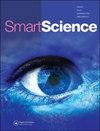Biomass supply chain resilience: integrating demand and availability predictions into routing decisions using machine learning
IF 1.4
Q2 MULTIDISCIPLINARY SCIENCES
引用次数: 3
Abstract
ABSTRACT Biomass sources have the potential to mitigate carbon emissions as a renewable source while reducing waste and residues. Seasonality and disruption risks are some of the disadvantages of biomass resources requiring that biomass supply chains be managed such that to withstand disruptions. There has been very limited research on integrating predictions for smart management on supply or demand sides of biomass supply chains. In this study, a number of predictive models are investigated for building energy demand and biomass stock availability subject to forecasts of weather conditions. On that basis, an allocation algorithm is proposed for optimal collection and logistics of biomass from land to depots. Accordingly, Google Maps API will be used to identify the best distribution routes for delivering biomass from depots to end-users. A case study with real (supply and demand) data is considered. The proposed integrated data-driven approach aims at improving the accuracy of biomass supply and demand predictions and coordinating these predictions to enhance the resiliency of bioenergy supply chain routing decisions. Graphical Abstract生物质供应链弹性:利用机器学习将需求和可用性预测整合到路由决策中
作为一种可再生能源,生物质资源具有减少碳排放的潜力,同时减少了废物和残留物。季节性和中断风险是生物质资源的一些缺点,要求对生物质供应链进行管理,使其能够承受中断。在生物质供应链的供需端整合智能管理预测方面的研究非常有限。在这项研究中,研究了一些预测模型,以建筑能源需求和生物质库存可用性受天气条件的预测。在此基础上,提出了生物质从陆地到仓库的最优收集和物流分配算法。因此,谷歌Maps API将用于确定将生物质从仓库运送到最终用户的最佳配送路线。考虑使用真实(供给和需求)数据的案例研究。提出的综合数据驱动方法旨在提高生物质供需预测的准确性,并协调这些预测,以增强生物能源供应链路线决策的弹性。图形抽象
本文章由计算机程序翻译,如有差异,请以英文原文为准。
求助全文
约1分钟内获得全文
求助全文
来源期刊

Smart Science
Engineering-Engineering (all)
CiteScore
4.70
自引率
4.30%
发文量
21
期刊介绍:
Smart Science (ISSN 2308-0477) is an international, peer-reviewed journal that publishes significant original scientific researches, and reviews and analyses of current research and science policy. We welcome submissions of high quality papers from all fields of science and from any source. Articles of an interdisciplinary nature are particularly welcomed. Smart Science aims to be among the top multidisciplinary journals covering a broad spectrum of smart topics in the fields of materials science, chemistry, physics, engineering, medicine, and biology. Smart Science is currently focusing on the topics of Smart Manufacturing (CPS, IoT and AI) for Industry 4.0, Smart Energy and Smart Chemistry and Materials. Other specific research areas covered by the journal include, but are not limited to: 1. Smart Science in the Future 2. Smart Manufacturing: -Cyber-Physical System (CPS) -Internet of Things (IoT) and Internet of Brain (IoB) -Artificial Intelligence -Smart Computing -Smart Design/Machine -Smart Sensing -Smart Information and Networks 3. Smart Energy and Thermal/Fluidic Science 4. Smart Chemistry and Materials
 求助内容:
求助内容: 应助结果提醒方式:
应助结果提醒方式:


